Film Map of the environment; or nine films to explore our relationship with nature
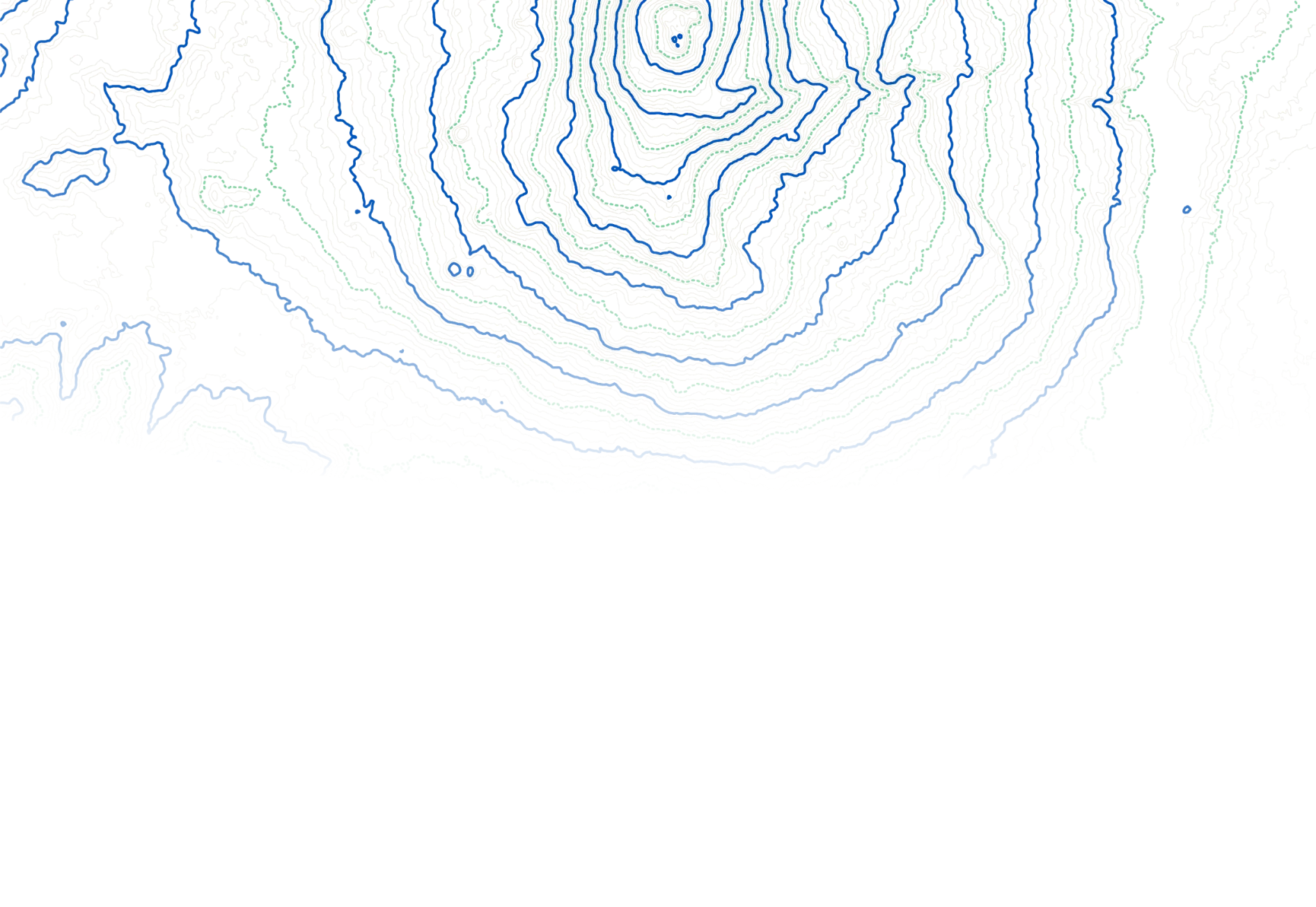

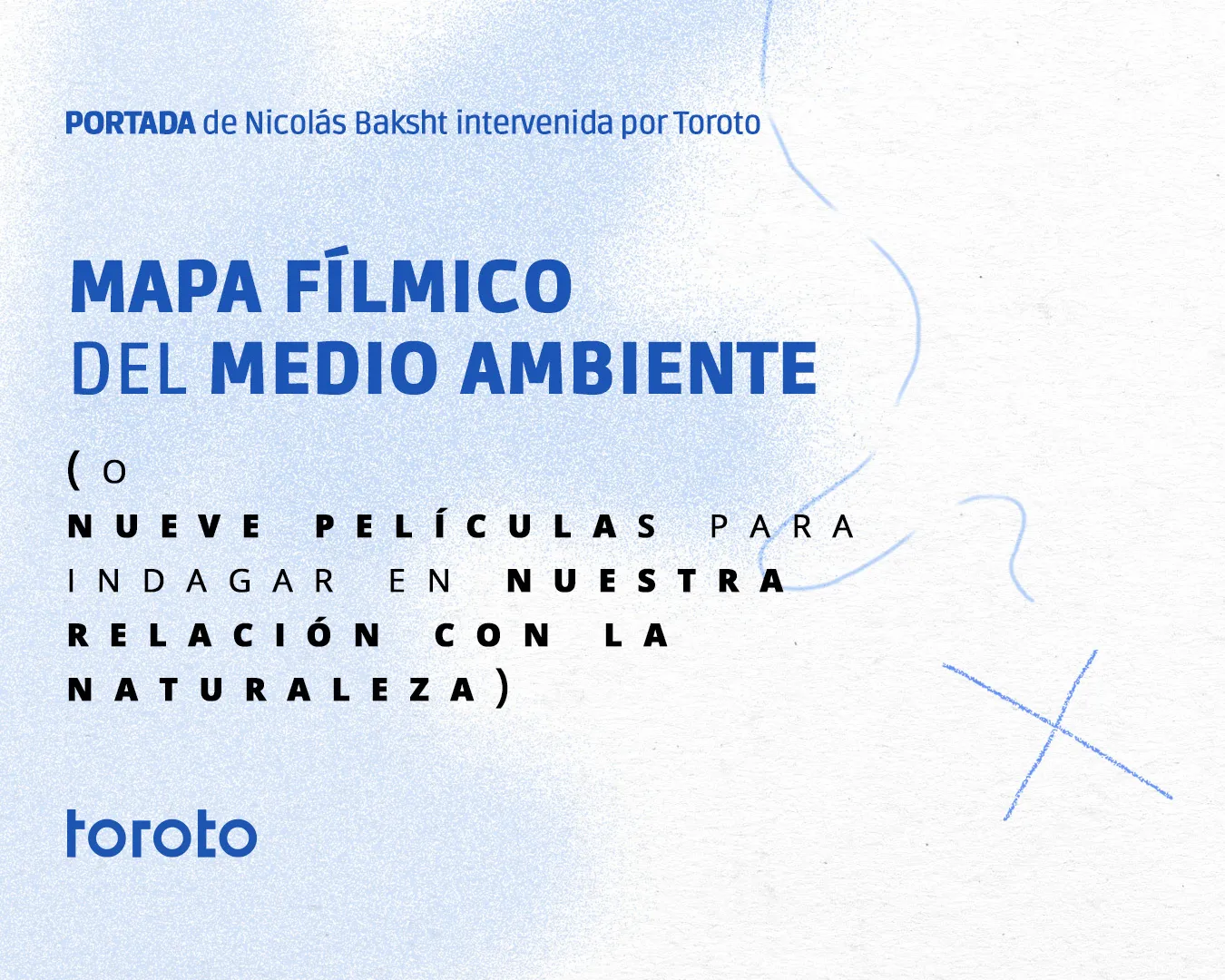
Cartography of film production on subjects such as nature, environment, climate change and sustainability is probably an incomprehensible task due to the growing - and exponential - production of audiovisuals on these subjects, which are increasingly urgent. However, in these reviews, we will give some key coordinates to be able to curatorily explore some of the most relevant examples whose themes respond to certain situations of the environmental and climate crisis. We hope that the words expressed can serve those who read this map as a kind of compass, and that it will lead them to a deep (audio) vision of the topics that today more than ever concern any human being that inhabits planet Earth.
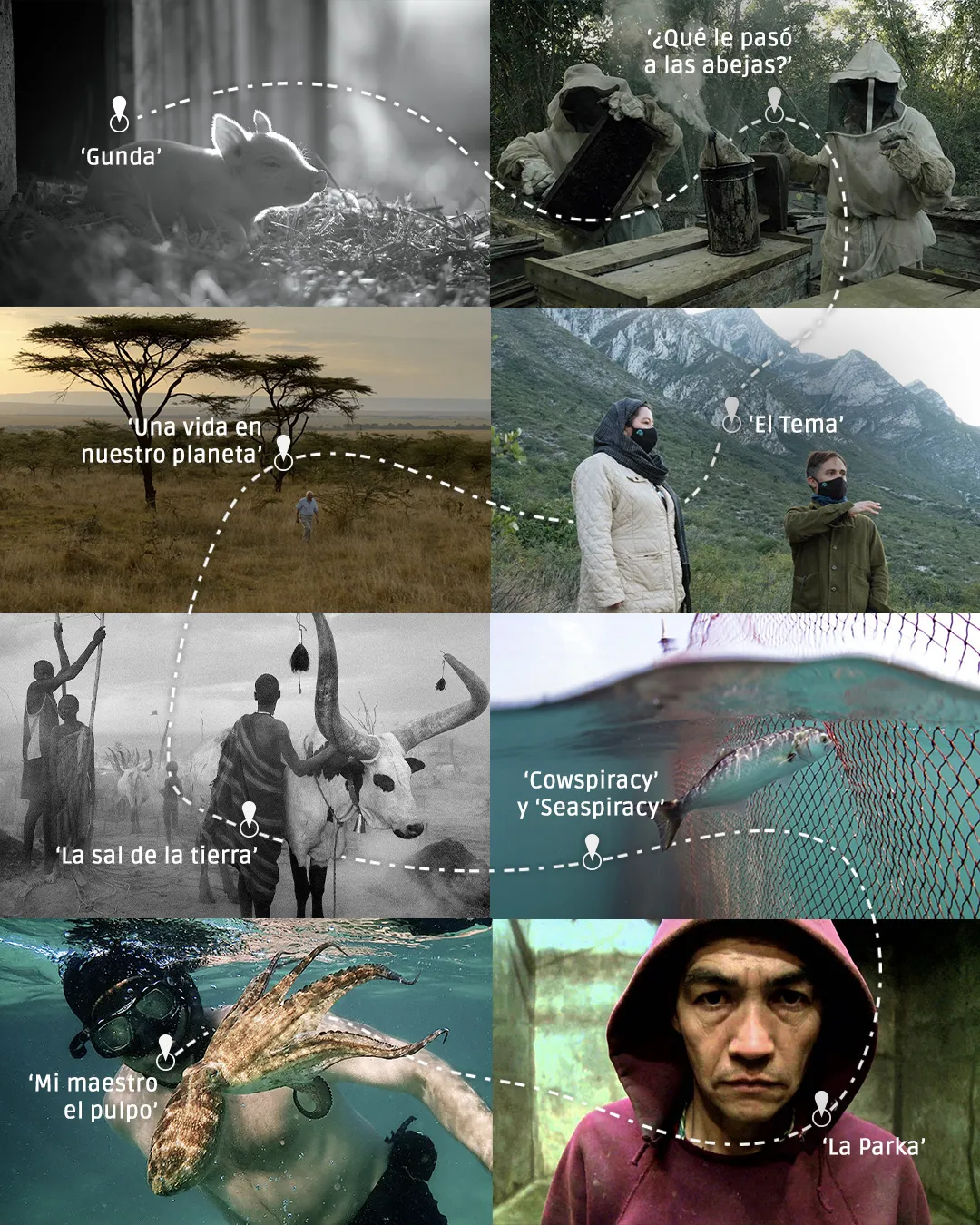
Gunda, 2020
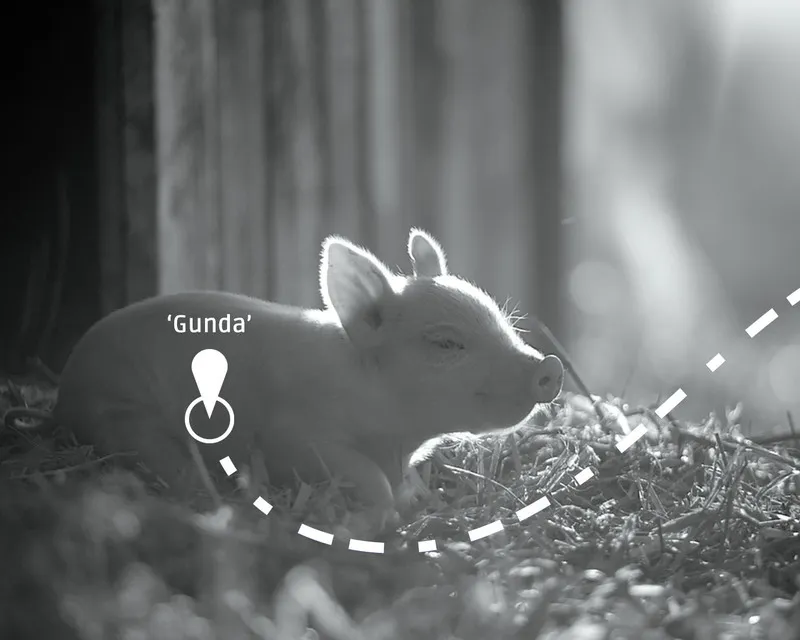
We will begin this journey witnessing the birth of a litter of cochinitos; we are on the farm that lives in Gunda, a mother pig who must take care of her young from a fateful fate. This observational documentary in black and white, unlike other points on the map, is not a film about animal cruelty or a depressing vision of the world, quite the contrary, the first coordinate of the present text is a Ode to life, a beautiful invitation to feel more empathy for animals through the portrait of a pig mother in a context in which 500 million pigs are killed every year. The film directed by Russian documentary filmmaker Viktor Kosakovsky imprints a luminous vision that captures incredibly moving moments, for example, it shows us a sublime moment in which some chickens experience freedom for the first time in their lives.
Available in HBO Max and Filmin.es
*
What happened to the bees? , 2018

Our second point on the map takes us to a documentary that takes place in the Yucatan Peninsula. What happened to the bees? portrays the struggle of Mayan beekeeping communities that try to stop the planting of transgenic soybeans in their territory, a problem that has a deadly effect on bees due to the damage caused to organisms and their ecosystems by the use of agrochemicals on which soy is dependent.
“The film unmasks the privileges of transnational corporations and shows the effects of capitalism on the social and ecological structures of indigenous communities in Mexico. The problem began in 2012, when millions of bees died because of the pesticides and herbicides used to plant transgenic soybeans in Campeche, at the hands of the company Monsanto, a pioneer in the genetic modification of plant cells. Aware of the effects of the death of these insects on the environment and on the preservation of biodiversity, the Mayan communities -led by Gustavo Huchin and Leydi Pech, protagonists of the documentary- confronted the authorities and neighboring Mennonite communities to stop the planting of transgenic seeds in their territory. Their struggle highlights the contrasts between traditional, sustainable and environmentally friendly methods, and industrial work that threatens to modify life as we know it until now.”
Available in Film in Latin
*
The Theme, 2021
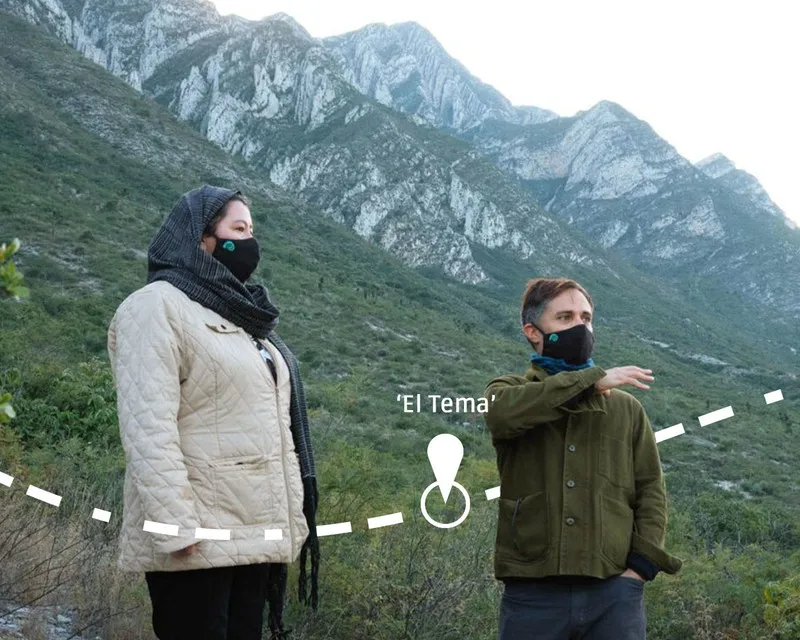
We have reached our third point on the map, a coordinate called The Theme which consists of six episodes about the climate and environmental crisis in Mexico told through the experiences of environmental activists, human rights defenders, indigenous communities, academic participants and civil society organizations. Two witnesses, Gael García Bernal, and writer and linguist Yásnaya Águilar, reflect on the impact of each problem.
The short films are framed in ecosystems and natural landscapes threatened by crises in different states of the country, and the themes they address are: Agua, in Chihuahua; Aire, in Monterrey; Carbón, in Coahuila; Oceans, in Cozumel; Energy, in Tabasco; and Food, in Chapala. Each episode shows a specific problem and intertwines visions, strategies and actions to be able to propose a possible future with a climate vision that is part of the country's political agenda.
Web series available at The topic | The Gulf Stream, free of charge, no subscription required.
*
A Life on Our Planet, 2020
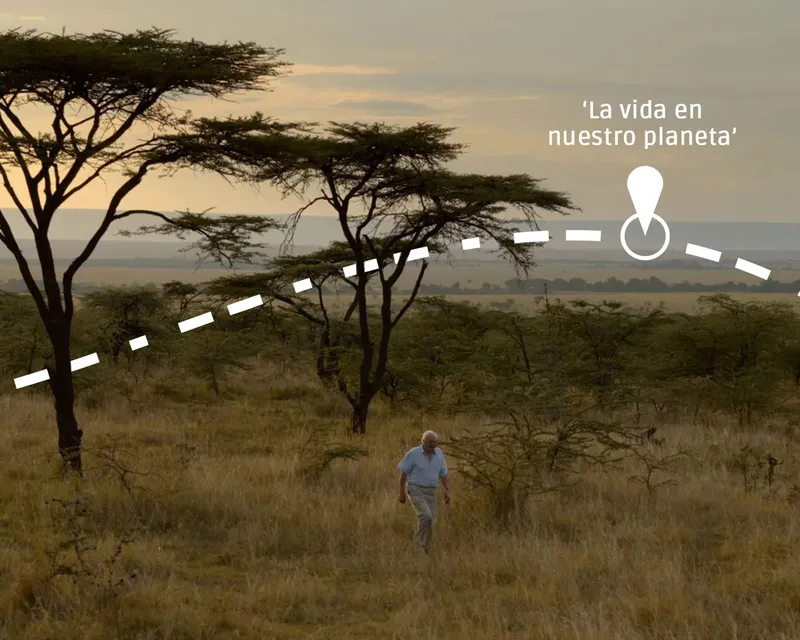
Our fourth stop on the map is presented by a well-known old nature explorer, David Attenborough In the documentary A life on our planet. At 93 years old, David Attenborough has visited every continent on Earth, exploring hundreds of places and documenting the living world in all its glory. Now, for the first time in this film, he reflects on the most relevant experiences of his life as a naturalist. “The natural world is fading away, evidence is everywhere, it has happened in my time, I have seen it with my own eyes, this film is my testimony or my vision”; with this phrase begins a documentary made with the juxtaposition of spectacular shots of the natural world. From its innate beauty, it reveals that today there are fewer and fewer wild, pristine, well-preserved places on our planet, and therefore, biodiversity, ecosystems, cultures and life in its very diverse forms are endangered.
Available in Netflix
*
Cospiracy, 2014 and Seaspiracy, 2021
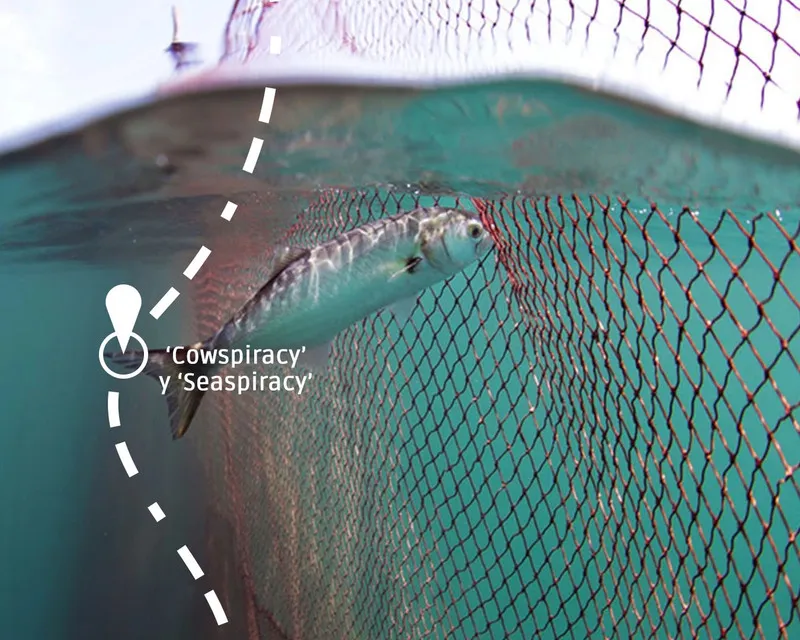
Stop number five and six: Cowspiracy and Seaspiracy. At this point on the map, many people make the decision to stop eating animal meat. These are films that achieve a path similar to another documentary called An Inconvenient Trutha: this triad of examples disturb the depths of our bowels, in order to transform our habits on a human level and invite spectators to take direct action to change our dietary consumption. The first of these two documentaries makes a direct criticism of industrial meat production, and highlights the natural resources necessary to support conventional intensive livestock farming, which feeds human consumption. The second documentary exposes the problem of overfishing, the human impact on marine life, plastic waste in the ocean, whaling, dolphins and sharks, and contemporary slavery in the Thai fishing industry.
Available in Netflix
Available in Netflix
*
The Parka, 2013
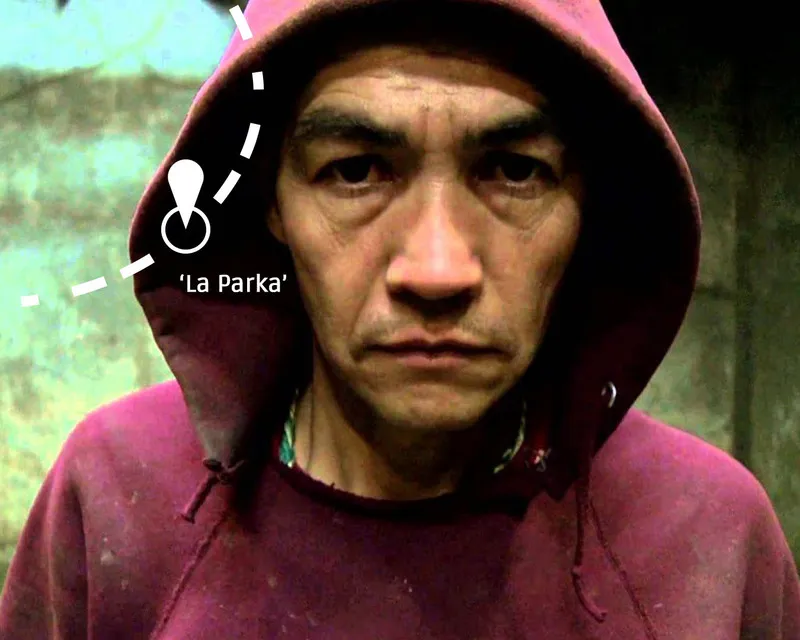
La Parka It is probably the darkest point on the road, here we reached the deepest cavern of our trip. The reader is recommended to do this stop until he feels mentally strong - because at least it affected me a lot when I saw it - however, I think it is a cinematic jewel worthy of recommendation. This Oscar-nominated Mexican documentary short film tells the story of Efraín, a veteran refrigeration worker who has been working for more than 25 years; the film portrays the deep bond that exists between him and death, and opens the eyes of meat eaters to see the last moment in the life of cattle that will end up on our plates.
Available completely and free hither
*
The Salt of the Earth, 2014
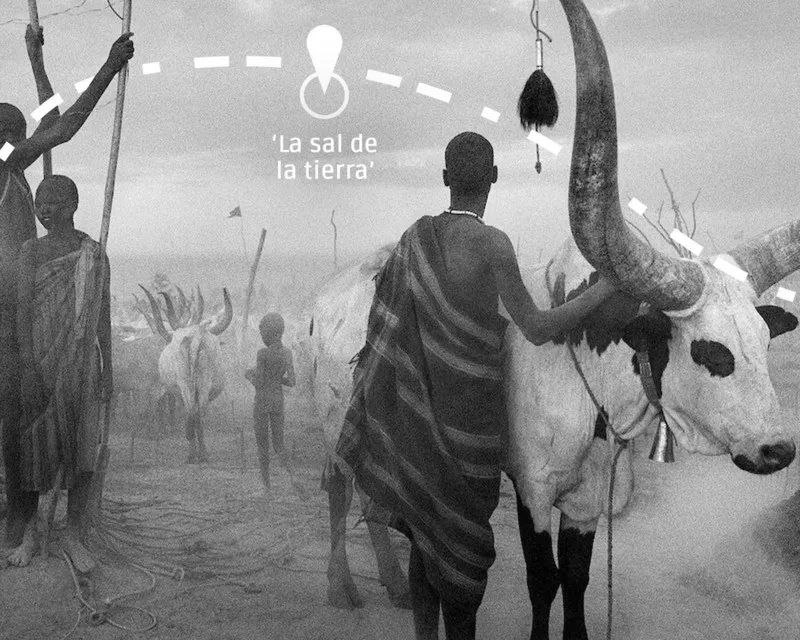
Gradually we began our transition to the final journey. We have reached the eyes and soul of Sebastião Salgado, an amazing Brazilian photographer who for the past 40 years has traveled across five continents following in the footsteps of a constantly changing humanity. Salgado has witnessed some of the most important events in our recent history: international conflicts, famines and exoduses. With this award-winning documentary directed by Wim Wenders, we transcend the dark and pessimistic region of the journey to go to the crack of dawn and regain some light with which we began this journey. By following Sebastião's path of life to reverse his depression due to the dehumanization characteristic of our society, he manages to hold on to the wonders of nature and dedicate his life to the reforestation of lands, masterfully documenting the process. Without a doubt The salt of the earth is a work of art that takes us in its final stretch through magnificent landscapes and pristine territories full of wild flora and fauna. Through writing with light, the renowned photographer immortalizes a magnificent tribute to the beauty of our planet.
Available in Film in Latin, Filmin.es, and to rent in youtube, Google Play and Apple TV
*
My master the octopus, 2020
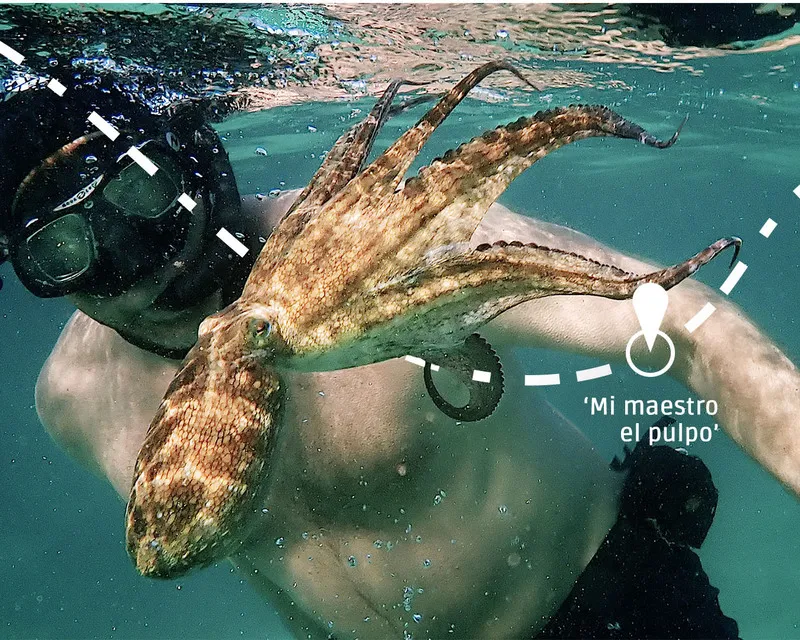
After so much gloom, the sun rises again, the path regains its luminosity and the last point on the map, the ninth, is revealed. We concluded our journey in an emotional corner very similar to the one where we started the trip, only this time instead of being on a farm we sank to the depths of the ocean to meet My master the octopus in a seaweed forest. This endearing story will delve us into underwater mysteries and will restore hope in the world, portraying other possible ways of relating to nature and to non-human people.
Available in Netflix
*
The cartography presented here has come to an end, and as we observe the journey we took, some urgent questions are drawn up, we anticipate our steps, exclaim and declare the following questions: why does what we eat go beyond being food, and becomes a topic of political relevance? Why is the natural world fading away - as Attenborough would say? Why do we need to feel empathy for animals to inhabit the world we live in? Why should we rethink the consumer habits we fall into? And finally, what are we going to do to take care of our only planet?
Those who have enjoyed this text are invited to chart their own routes to discover the relationship with the natural world that everyone wants to forge and exercise, taking into account the urgency of rethinking each of the relationships that we will build together with nature. I put my hands in the fire to ensure that in the coming decades there will be hundreds of unmissable audiovisual points to delve ever deeper into this Film Map, which serves as a starting point for dealing with the different areas of our relationship with nature; from consumption patterns and the ethics behind our interaction, to the use we give to the natural resources that sustain us and give life.
If cinema has one thing, it is its capacity to transform reality. The more we see, share, reflect and dialogue around films that explore these themes, we can understand and complicate our role on a planet where the protection of biodiversity, the care of ecosystems, access to and fair distribution of natural resources, the fight against the climate, environmental and social crisis, and the sustainable interaction between nature and society are just a few examples of crucial situations that we cannot ignore if we want to continue to exist. Let's share our maps, be a collective compass and do what we can to be increasingly responsible and loving with that little blue dot floating in the universe that is our home.
About the author:
Nicolás Baksht is a contributor to the Toroto blog and a filmmaker interested in experimental documentary films. He is currently a FONCA Young Creators Fellow in the field of video. His films have been selected and awarded at various national and international festivals.
Explore reflections, research and field learning from our work in ecosystem restoration.